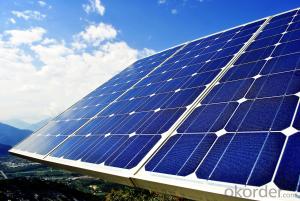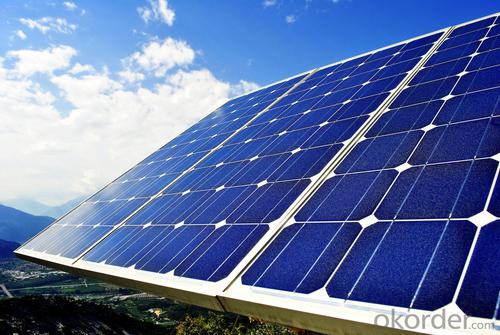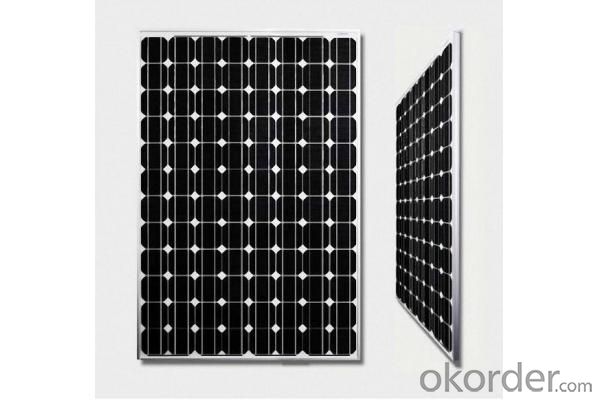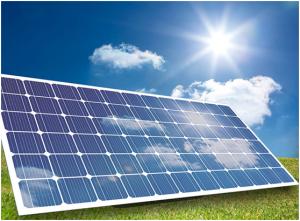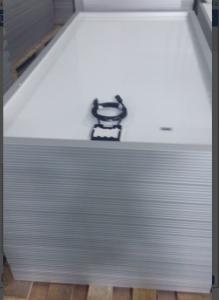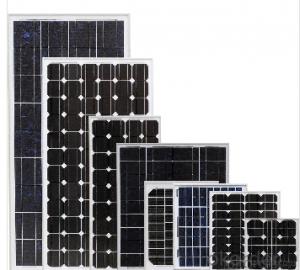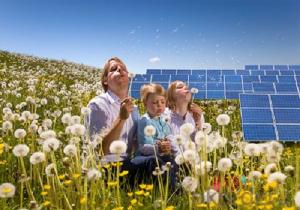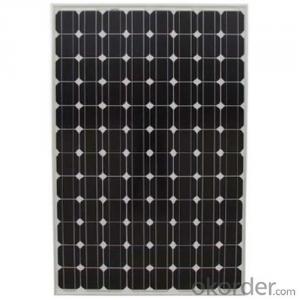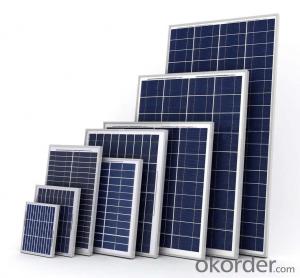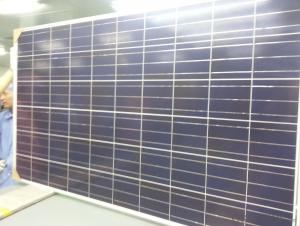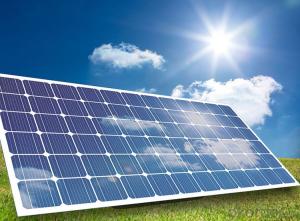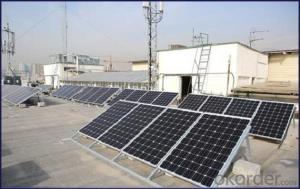Ecoflow Delta Pro CE and TUV Approved High Efficiency 30W Poly Solar Panel
- Loading Port:
- Shanghai
- Payment Terms:
- TT OR LC
- Min Order Qty:
- 10000 watt
- Supply Capability:
- 20000000 watt/month
OKorder Service Pledge
OKorder Financial Service
You Might Also Like
Specification
Product Description:
1.Structure of Polycrystalline Silicon Solar Panel
I. High efficiency crystalline silicon solar cell. Even if under the weak light, the solar module can produce maximum power output.
II. Tempered glass (toughened glass): Anti-reflecting coating and high transmission rate glass increase the power output and mechanical strength of solar module.
III. EVA and TPT: Using high quality EVA and TPT to prevent destroying and water.
IV. AI frame: Without screw, rner connection. 6 holes on the frame can be installed easily.
V. Junction box: Multi function junction box with water proof.
VI. Long lifetime: ≥25 years; Less power decrease.
VII. Good performance of preventing from atrocious weather such as wind and hails.
VIII. Resisting moisture and etching effectively, not effected by geology.
IX. The certificate issued by international authority: UL, TUV, IEC, CE.
2.Characteristics
1)Manufactured according to international quality and Environment Management
System (ISO9001, ISO14001)
2)High efficiency crystalline silicon solar cells
3)High transmission Iow iron tempered glass, strong mechanical resistance
4)Anti-ageing EVA and excellent anti-climate back sheet
5)Anodized aluminum frame improves load resistance capabilities for heavy wind loads.
6)Standard waterproof junction box
7)High endurance to different weather
8)Good and friendly package with less transportation and storage space.
3.Warranty
1)10 years limited manufacturing warranty
2)10 years for 90% of warranted minimum power
3)25 years for 80% of warranted minimum power
4.The Pictures of Solar Panels
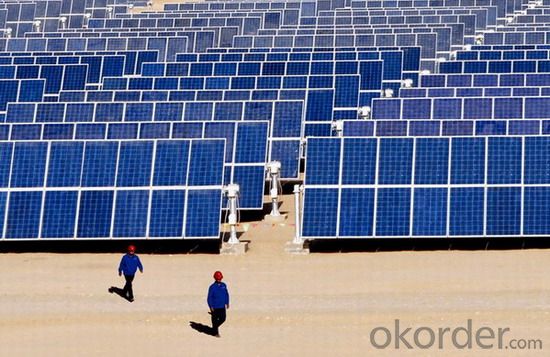
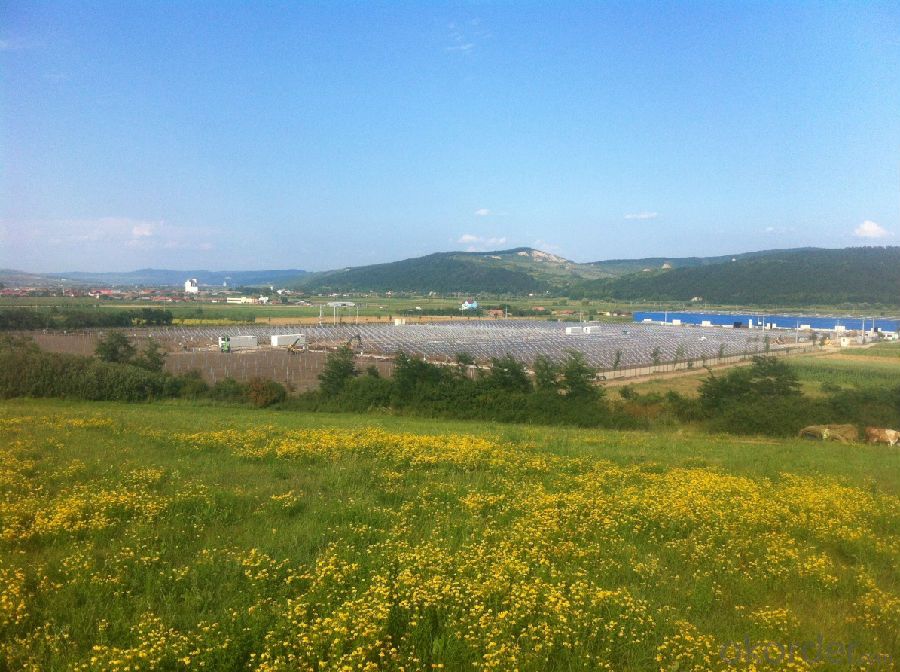
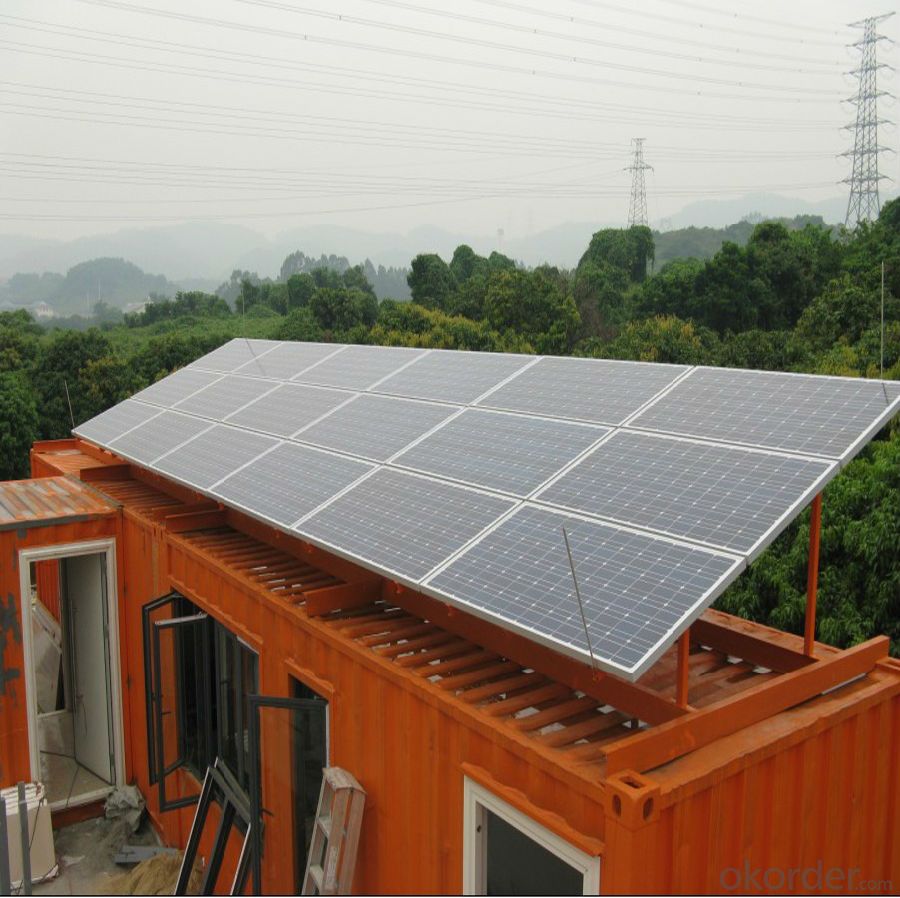
5. Production Flow
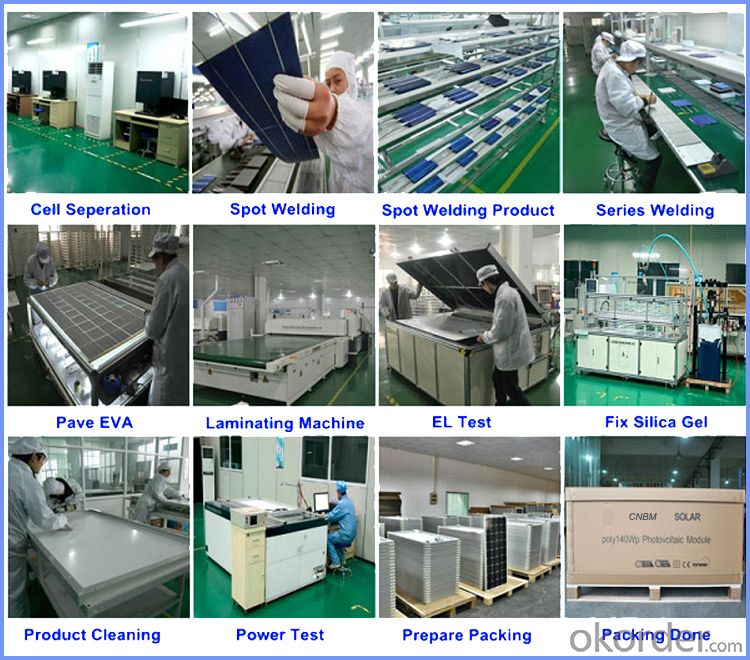
6. Packing Details
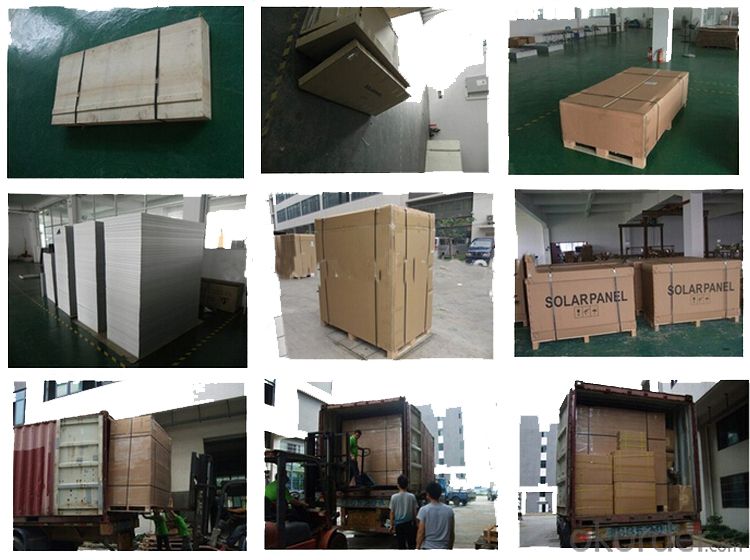
7. Use For
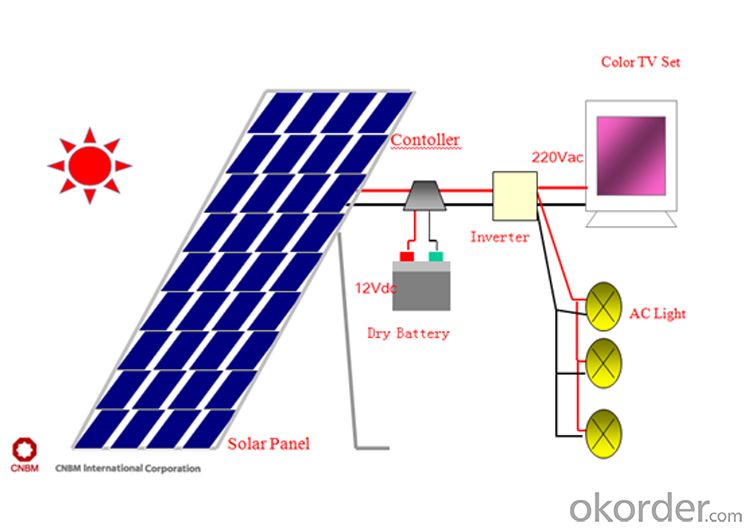
- Q: Are solar panels easy to maintain?
- Yes, solar panels are generally easy to maintain. They have no moving parts and require minimal upkeep. Occasional cleaning to remove dust and debris is recommended, and regular inspections to ensure proper functioning are necessary. However, overall, the maintenance requirements for solar panels are quite low compared to other energy systems.
- Q: Rated in kilowatts, what is the maximum output of one 8 by 0 solar panel? Assume this solar panel is located at the equator for maximum sunlight.
- Using MTRstudent's information of 000 watts per square meter and 5% efficiency or 50 watts per square meter, your 8 ft by 0 ft panel has 7.43605 square meters of area. A panel of this size could generate about .5 Kilowatts of electricity.
- Q: Can solar panels be used on agricultural land?
- Yes, solar panels can be used on agricultural land. In fact, solar installations on farms and agricultural areas have become increasingly popular due to the dual benefits they offer. They not only generate clean energy but also provide farmers with an additional revenue stream. By utilizing solar panels on their land, farmers can offset their energy costs, reduce their carbon footprint, and contribute to a more sustainable future.
- Q: What is the warranty on solar panels?
- The warranty on solar panels typically varies between 10 to 25 years, depending on the manufacturer.
- Q: How much energy can a solar panel produce?
- The amount of energy a solar panel can produce depends on various factors such as its size, efficiency, location, weather conditions, and orientation. On average, a standard residential solar panel can produce anywhere from 250 to 400 watts of power. However, with advancements in technology, larger solar panels or those used in commercial installations can generate several kilowatts or even megawatts of electricity.
- Q: I need to know how do solar panels work. I need to know what are they made of.
- The term solar panel is best applied to a flat solar thermal collector, such as a solar hot water or air panel used to heat water, air, or otherwise collect solar thermal energy. But 'solar panel' may also refer to a photovoltaic module which is an assembly of solar cells used to generate electricity. In all cases, the panels are typically flat, and are available in various heights and widths.
- Q: I am looking at a need of roughly 30w/hour need per 24 hour period. I have spent several hours now looking for information online and have found plenty of info regarding the panels themselves, but information regarding the batteries backups have been slim. I understand that there is a 5-7 hour peak time to collect the energy. I am looking for information regarding the batteries themselves. How do the batteries work, what size batteries should I look for, and what is the life expectency for the batteries? Any website links would also be appreciated!
- Solar panels have their own characteristics and generate current depending on the intensity of sunlight falling on them and not on the temperature. Direction of the panel also makes lots of difference. Nowadays very thin panels are available at very high cost. The more area a panel occupies it generates more current. The current generated by a panel cannot be readily used since the current and voltage varies with the load connected to it. So normally a regulator is used to have constant voltage and constant current to come from the panel. This charges the battery. You have to calculate the total/normal current from the charger and then find the AH of the battery. When you have calculated the AH of the panel/charger then you can divide the AH of the battery by the AH of the charger/panel and find out the time taken to fully charge the battery. You also have to remember that there is a de-rating factor to be taken into consideration in the battery.
- Q: How do solar panels affect the property's energy management strategy?
- Solar panels can significantly impact a property's energy management strategy by providing renewable and clean energy. By harnessing the power of the sun, solar panels can reduce dependency on traditional energy sources, lower electricity costs, and promote sustainability. The excess energy generated by solar panels can be stored or sold back to the grid, further optimizing energy management. Additionally, solar panels can enhance a property's overall value and reputation, making it more attractive to environmentally conscious consumers.
- Q: I want to know how many solar panels to use to power my AC and Water heater
- You can power all your house with solar panels, you can follow some simple video instructions to build all your solar panel and solar power needs manually for your home electricity..
- Q: im trying to experiment with solar panels. so i dont want to buy a huge expensive solar panel if i dont need one.
- Create okorder
Send your message to us
Ecoflow Delta Pro CE and TUV Approved High Efficiency 30W Poly Solar Panel
- Loading Port:
- Shanghai
- Payment Terms:
- TT OR LC
- Min Order Qty:
- 10000 watt
- Supply Capability:
- 20000000 watt/month
OKorder Service Pledge
OKorder Financial Service
Similar products
Hot products
Hot Searches
Related keywords
